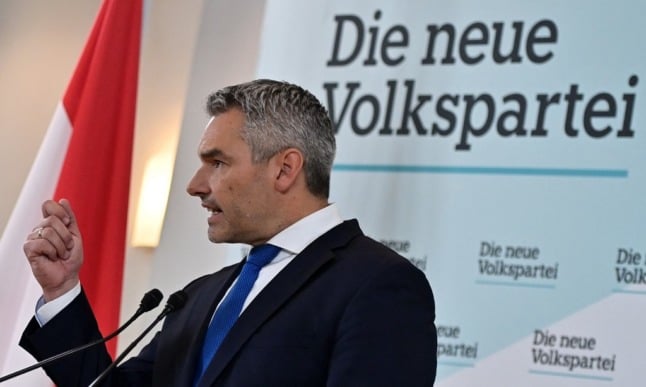Nehammer will become both Chancellor and head of the conservative People’s Party (ÖVP), currently in coalition with the Greens.
The changeover was sparked by the sudden news on Thursday that former Chancellor Sebastian Kurz was quitting politics completely just two months after he stepped down from his role.
He had been replaced as Chancellor by former Foreign Minister Alexander Schallenberg, but initially retained the post as head of his conservative People’s Party (ÖVP) — leading to the widespread view that Kurz would continue to wield significant influence.
Kurz’s departure on Thursday led Schallenberg to quit, saying that he had never intended to become party leader and believed the Chancellor should hold this role.
Nehammer worked in the army for several years before becoming a communications advisor.
He became a lawmaker in 2017 and interior minister in January 2020, his biggest challenge in this post being the first jihadist attack in Austria, which killed four people in December that year, and ensuing allegations that the ministry had failed to monitor the man behind the killings despite him being known to authorities.
Nehammer’s new job isn’t the the only change in the Austrian government.
Finance Minister Gernot Blümel quit his ministerial position and his other role as head of the ÖVP in Vienna, and Education Minister Heinz Faßmann has also resigned to be replaced by the former rector of the University of Graz, Martin Polaschek.
Taking over Nehammer’s post in the Interior Ministry meanwhile is Gerhard Karner, a figure from the Lower Austrian regional council.



 Please whitelist us to continue reading.
Please whitelist us to continue reading.
Member comments